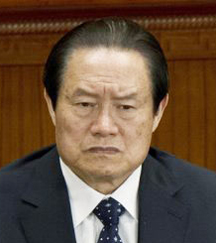HONG KONG, (Reuters) – A Chinese state security official has been arrested on suspicion of spying for the United States, sources said, a case both countries have kept quiet for several months as they strive to prevent a fresh crisis in relations.

The official, an aide to a vice minister in China’s security ministry, was arrested and detained early this year on allegations that he had passed information to the United States for several years on China’s overseas espionage activities, s aid three sources, who all have direct knowledge of the matter.
The aide had been recruited by the U.S. Central Intelligence Agency and provided “political, economic and strategic intelligence”, one source said, though it was unclear what level of information he had access to, or whether overseas Chinese spies were compromised by the intelligence he handed over.
The case could represent China’s worst known breach of state intelligence in two decades and its revelation follows two other major public embarrassments for Chinese security, both involving U.S. diplomatic missions at a tense time for bilateral ties.
The aide, detained sometime between January and March, worked in the office of a vice-minister in China’s Ministry of State Security, the source said. The ministry is in charge of the nation’s domestic and overseas intelligence operations.
He had been paid hundreds of thousands of U.S. dollars and spoke English, the source added.
“The destruction has been massive,” another source said.
The sources all spoke on condition of anonymity for fear of punishment if identified.
China’s foreign ministry did not respond immediately to a faxed request for comment sent yesterday.
The sources did not reveal the name of the suspected spy or the vice minister he worked for. The vice minister has been suspended and is being questioned, one of the sources said.
The Ministry of State Security rarely makes public the names of its officials and does not have a public web site.
The incident ranks as the most serious Sino-U.S. spying incident to be made public since 1985 when Yu Qiangsheng, an intelligence official, defected to the United States. Yu told the Americans that a retired CIA analyst had been spying for China. The analyst killed himself in 1986 in a U.S. prison cell, days before he was due to be sentenced to a lengthy jail term.
STRING OF SCANDALS
The vice minister’s aide was arrested at around the same time that China’s worst political scandal in a generation was unfolding, though the sources sa id the two cases were unrelated.
The political scandal erupted in February when the police chief of Chongqing municipality, in southwest China, took shelter for 24 hours in a U.S. consulate. Chongqing’s ambitious Communist Party boss, Bo Xilai, was later suspended after it emerged the police chief had been investigating Bo’s wife for murder.
Bo’s wife is now being detained on suspicions that she poisoned a British businessman, Neil Heywood, in a dispute over money.
Washington kept an official silence on that incident, but in late April relations came under even more pressure when blind Chinese dissident Chen Guangcheng escaped from house detention and sought refuge in the U.S. embassy in Beijing.
Chen spent six days in the embassy, sparking a diplomatic crisis that was only resolved when Beijing allowed him to leave the country last month to take up an academic fellowship in New York.
The exposure of the espionage case could put more pressure on the powerful Zhou Yongkang, who formally oversees the state security apparatus as a member of China’s top decision-making body, the Politburo Standing Committee.
The Bo and Chen cases have already raised questions over the effectiveness of the security establishment which, under Zhou, has become more costly to maintain than the nation’s military.
